
Flashback to Flushing Meadows: Rusedski reflects on reaching final, 20 years on
• 5 MINUTE READ
As Flushing Meadows prepares for an exciting weekend of finals, we’re throwing it back to 1997 when British legend Greg Rusedski historically reached the US Open men's final.
Twenty years on, the former British No.1 reflects on his incredible journey and reveals his top five memories of the tournament that truly changed his career.
1. Heading into the 1997 US Open…
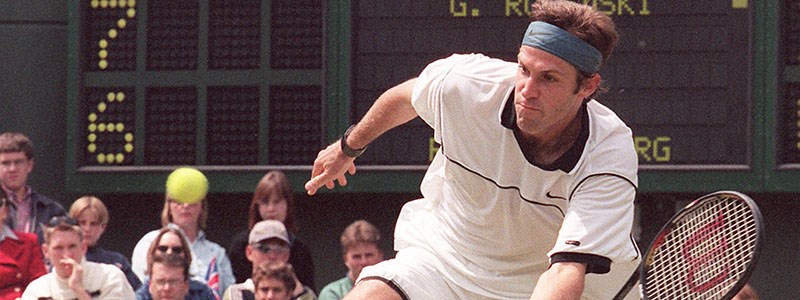
Before heading into the fourth and final Grand Slam of the season, it had been a pretty solid year for the Rusedski. He’d shown great promise from the beginning of the year in San José, when he defeated top players Andre Agassi and Michael Chang to reach the final and his form continued into the grass-court season.
He became champion of the Nottingham Open and reached the semi-finals of Wimbledon, before he began transitioning back to the hard-court surface.
“1997 was kind of like my breakthrough to the big time in men’s tennis and then leading into the US Open, it was quite funny because I’d never won a match there and it was the first year they had built Arthur Ashe Stadium.
“My preparation did really well going into the event – I’d lost in the semis of the week previously to Rafter who I’d actually meet in the finals that year, so coming into the event I felt really good. I had great preparation with the whole team around me and got off to the perfect start.”
2. The early stages…
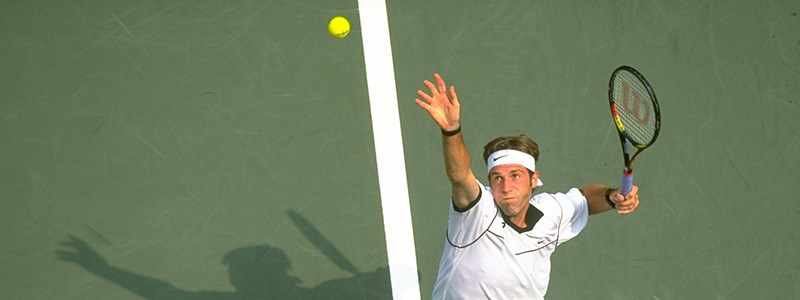
Although a fantastic hard-court player with one of the biggest serves in the game, Rusedski had never before reached the second-round of the US Open - but for his seventh shot at the slam, it was all about to change…
The Brit faced former Wimbledon semi-finalist David Wheaton in the opening round, but was unfazed by the American’s Grand Slam record and raced through to clinch a three-set victory.
He started as he meant to go on and didn’t drop a set up until the semi-finals. However, there was an incredibly challenging time along the way, when news reached New York of Princess Dianna’s tragic passing.
“The thing which was the challenge was actually the Sunday before the finals - Princess Dianna’s car crash, so that was big having to deal with and then playing on the Monday, because nobody was playing tennis or sport during that whole week from the car crash all the way to the funeral.
“So it was not only tennis that was happening because at the same time, the whole nation was obviously in shock and in mourning for the terrible loss of Princess Dianna and I was having to deal with the media and the press surrounding all those things, while trying to have one of my best runs at a Grand Slam.”
3. The semi-final…
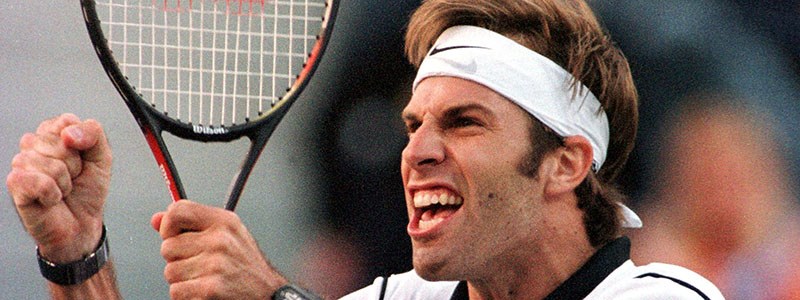
Rusedski’s remarkable straight-set record continued through to the quarter-finals, where he overcame Richard Krajicek to set up a semi-final with Jonas Bjorkman.
After his quarter-final, the Brit remembered getting ill with a throat infection before facing the Swede. That, with the knowing that his opponent led an illustrious head-to-head could have been enough to throw any player, but Rusedski proved resilient and fought back from two sets to one down to claim the epic five-setter.
Not only was it the perfect achievement to celebrate on his birthday that day, but it also marked the first time a British male had reached the US Open final since Fred Perry in 1936.
“I remember the match quite vividly because I could feel Bjorkman testing out for the final stages of the fifth set, while I was relaxed and more composed, and sometimes that makes the difference between getting to the finals or losing in the semis.
“So for me it was a historic moment - not only on my birthday but also on Princess Diana’s funeral that day, to win that match and to get my first Grand Slam final. It was September the 6th which is a special day for me, but obviously a tough day for the country.”
4. The final…
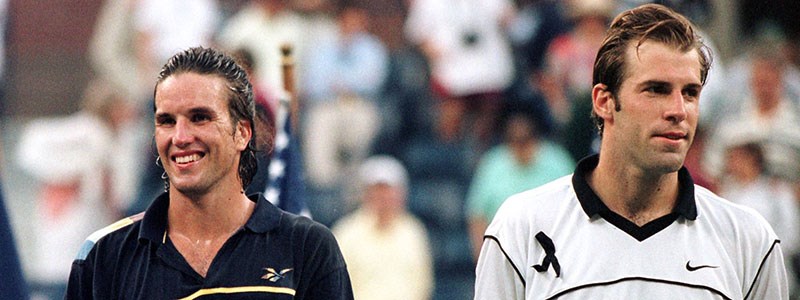
Pat Rafter waited in the final, in what was the first to be played on the brand new Arthur Ashe stadium. Rusedski recalled his final moments in the locker room before stepping out to play in the biggest match of his life, and admitted to getting off to a slow start after losing the first two sets. He battled back to take the third, but a tight fourth set eventually went Rafter's way and he clinched the title with a 6-3, 6-2, 4-6, 7-5 victory.
“You know it goes from being hustle bustle to completely quiet with only yourself and your opponent in the locker room and then you get out on Arther Ashe stadium with 23,000 people screaming and yelling and cheering. It’s quite a fantastic and surreal sort of moment. That’s what we play for and that’s what we want to achieve in our careers so it’s kind of a dream to be in the final, but obviously you want to get to the finals and win as well.
“If I could have pushed it into a fifth, who knows what could have happened but obviously Rafter on the day was the better man and deserved to win. It’s something I’ll never forget; getting to my first Grand Slam final.”
5. BBC Sports Personality of the Year…
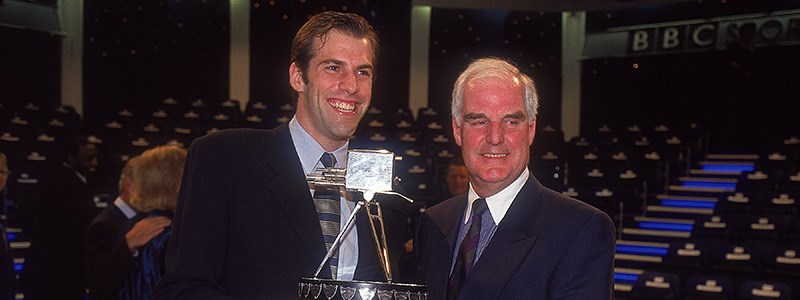
The result may have disconcerted many players, but it was straight back to business for the Brit. He returned to the UK where he reached the semi-finals of the Bournemouth International and became the first British male player to break into Top 10 in the Open Era.
He went onto seal his terrific season by winning the Swiss Indoors and reaching the final of the Vienna Open, before writing his name into the history books once more by becoming the first Brit to ever qualify for the end of season championships. It was therefore no real surprise when the public rallied together to vote him the BBC Sports Personality of the Year.
“The icing on the cake was getting BBC Sports Personality of the Year. A lot of people said 'you’re going to win it this year’ and I didn’t know whether I was or I wasn’t, but that was very special because the public obviously votes for you and it just shows that I was accepted, that the people appreciated what I did, and it was a very special moment to be able to win that.”





